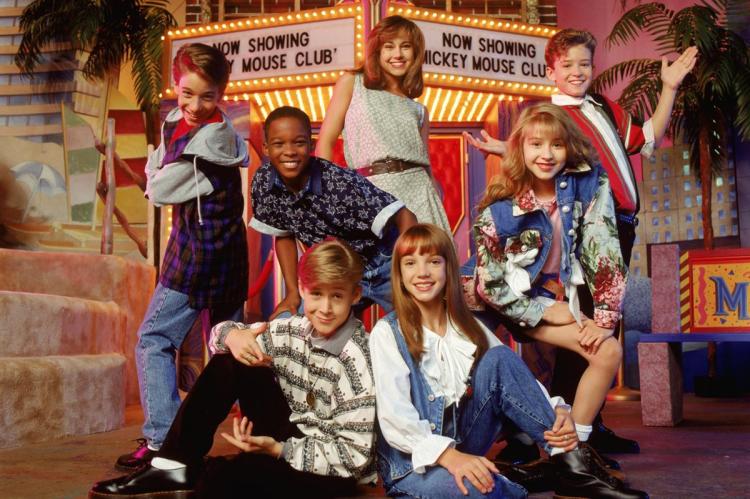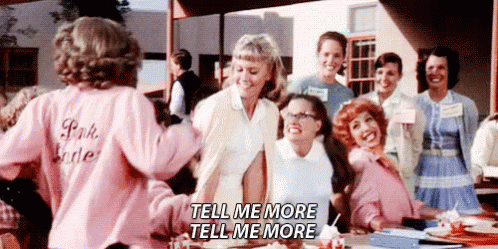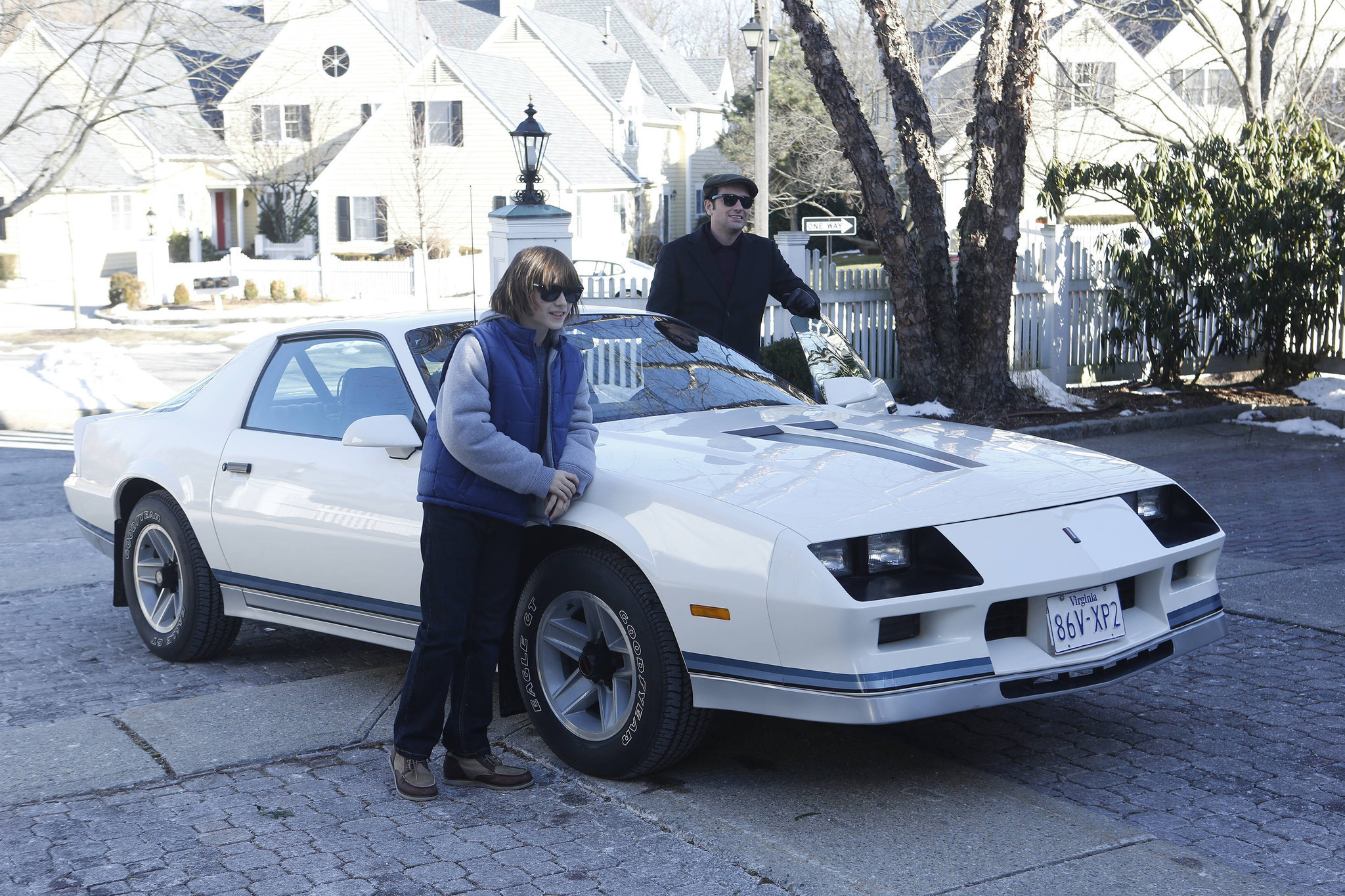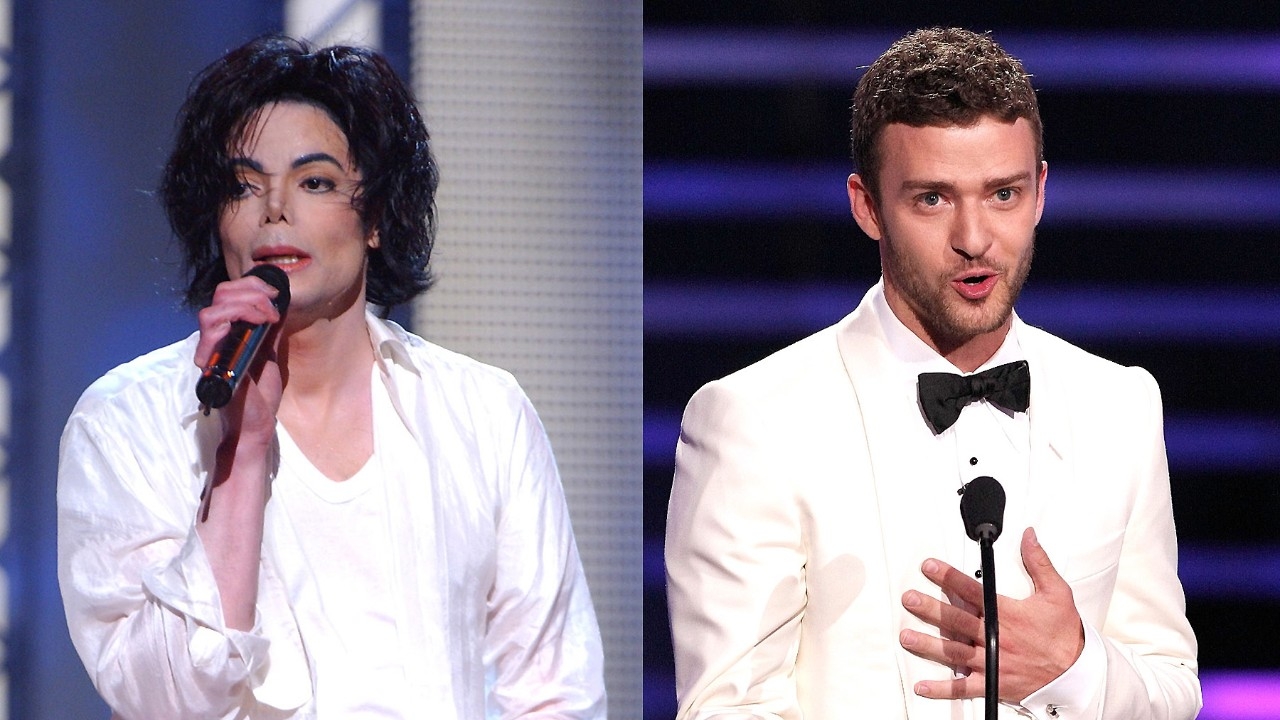Jordan Stokes: Who do you think made the single most successful transition from child star to adult star? Is it Joseph Gordon Levitt? Drew Barrymore? I feel like JGL has the edge there: Barrymore has had a major career and done some fantastic work, but Levitt has had more artistic credibility. Who am I forgetting?
Richard Rosenbaum: Dakota Fanning?
Mark Lee: Christian Bale?
Ryan Sheely: I feel like going back to the 90s incarnation of the Mickey Mouse club might be a pretty rich source of examples here.
Case in point, Ryan Gosling and Justin Timberlake were best buds from that show and were both Oscar Nominees this year. Both lost, but still, I feel like this isn’t the last shot for either of them.
I think answering this question is going to require clarifying some terms
Peter Fenzel: I mean, success is a tricky word, and I guess we’re talking about TV/movie stars here, but immediately I go to Michael Jackson. It’s hard to say anybody ever reached a higher pinnacle.
Sheely: I think what is interesting in Jordan’s question is the phrasing “successful transition”
Fenzel: Like maybe the guy who lived in an amusement park and wrote “Where Is My Childhood?”and “Leave Me Alone” might not be the front runner?
Sheely: Yeah, exactly.
Fenzel: One friend of ours has been known to say that depending on how you looked at it, Joe Jackson was either the worst father or the best father ever.
Sheely: There are multiple dimensions of successful transition- artistic, commercial, and personal are three that come to mind. So MJ is huge on 1 and 2; so huge that it may overwhelm #3?
Fenzel: But I don’t think we should:
- Assume that less famous and less scrutinized people are necessarily psychologically better off than Michael Jackson, as we might not know much about their inner lives to compare.
- Be careful about the contemporary white urge to retcon away Michael Jackson’s titanic achievement and influence on the grounds of various allegations and insults.
His moment did happen.
Sheely: It is interesting to compare Timberlake to Jackson, in terms of the kind of transition we are talking about.
Fenzel: Yeah, Timberlake is really impressive. It is interesting to look specifically at those who have “achieved an adulthood,” which I put in scarequotes because I’m a little hazy about being so normative and conventional about the lives of artists.
Sheely: Yeah, I agree, I think it is right to interrogate the discourse around that.
Fenzel: Like we can look at Timberlake’s work and chart a course that is consonant with our culture’s ideals of coming of age.
Sheely: Oh, interesting. Can walk through that?
Fenzel: Well, he starts as a boy, and as a boy, he’s not a fully formed individual. He has to be taught and he has to learn how to be part of the group, in both a micro and macro sense.
It’s interesting here to contrast Timberlake and Christina Aguilera. Both were in the Mickey Mouse Club, which is like school.

Fenzel: And then Timberlake is in N*SYNC and has a sort of public homoerotic exploration that progresses to the phallic phase, and then he finally becomes fully individual in the eyes of the public through his relationship and breakup with Britney Spears. He individuates as an artistic, public personage at the same rough time we would expect a young man to individuate, and with a similar progression.
Sheely: Artistically, he’s still had a lot of mentors and wing men. His big breakouts as a solo artist were with Timbaland as the producer and creative collaborator.
Fenzel: Whereas XTina goes solo much earlier, and she doesn’t really have this metanarrative about a youthful time of growth, even though that’s also what she was doing, because her performances were solo or like with Redman or whatever, which the American public wouldn’t look on as a proper way to grow up.
Sheely: So in comparison to Timberlake, it isn’t like she gets guided into the public eye by Missy Elliot or Mariah Carey.
Fenzel: Right, there’s a question of whether it is the public or private Timberlake who has grown up in our view and whether they are even the same person or more of a rough simulacrum. And yeah, XTina now is as adult and motherly as can be. But she didn’t perform a comfortable bourgeois coming of age.
Sheely: That’s really interesting, because the next phase of Timberlake’s progression into a comedic performer alongside the Lonely Island is actually more of a regression to a kind of teen boy mode.
Fenzel: Do you think of SNL Timberlake as boyish? I’m not so sure. Being willing to humble himself is a big part of the joke. I’m not disagreeing strictly, but more thinking that it’s reasonable to see this as a regression on paper, but I don’t feel that way about it in my gut.
Maybe it’s that it’s notable that SNL is kind of a family-oriented show even when it is being risqué?
Sheely: It is true. It is noteworthy that the dick is in the box, rather than, well out of the box. Or in an apple pie.
Sheely: I think a simple read of the SNL Timberlake appearances is one of immaturity, but I agree with you that misses what is actually good and enduring about those performances. One is the humility as you say, and the fact that someone of Timberlake’s level of fame is playing these very goofy characters. Another is that the Lonely Island songs and videos are generally really well executed.
Maybe my tendency to read it as regression is that he was so often paired with Andy Samberg who often plays a man-child.
But maybe Timberlake’s performances are more of a complement rather than a strict mirror
Fenzel: It’s interesting that in movies and TV your teens and early 20s are often a much more serious time than your late 20s and early 30s. Maybe that reflects aspiration? Our stars are serious when we feel too silly and silly when we feel too serious.
Or maybe our late teens and early 20s were actually very grim, serious times, which as I now recall may match recollection.
Sheely: I wonder how this maps onto Keri Russell, who I mentioned earlier, whose trajectory is towards progressively increasing seriousness, from Mickey Mouse Club to Felicity (which is a big jump), and from Felicity to The Americans, which is another big jump
Fenzel: The Americans is an apotheosis of this entire conversation.
Sheely: Tell me mooooooore

Fenzel: The Americans is about how a lot of aspects of family life that may be comfortable to think about as natural are instead contingent on culture.
The mom and dad are secret undercover Soviet spies who grew up in Russia (or the Ukraine, I think) trying to live “normal” lives, and the premise is a built-in alienation effect aimed at questioning what is normal.
The best piece of casting is that All American Keri Russell is the dyed-in-the-wool Marxist-Leninist Communist who resists internalizing her preformed American Life, and Mathew Rhys, who looks quite a bit more Slavic, is the one who likes living in America and is more willing to participate in American culture.
But the assumptions they call into question about what it means to be an adult in America range from whether they need to love each other to stay married (they don’t) to whether they need to take their family to church even though they are hard core atheists (they do).
The example from that show that’s coming to mind now is when Matthew Rhys’s character buys a Camaro, and it’s a huge point of contention.

Bitchin!
On one hand, he’s a certain kind of man of a certain kind of age, he’s a dad, he likes to go over the car classified ads as a way to connect with his son – buying a Camaro seems like a natural step, a funny, harmless, dad-like thing to do.
Buying the Camaro is the Timberlake move. Embrace what is expected of you at this point in your life. Reflect back to them their ideal of adulthood and the passage of time, and smile while you do it.
Maybe twist expectations just a little.
But only a little.
Keri Russell, however, sees the Camaro as a sign of weakness of character, of betrayal of country, of a sign that he cannot be trusted in the face of their incredibly difficult mission. It is a sentimental move, not adult, certainly not masculine.
It shows suggestibility rather than continence.
And that raises the question of whether a person who acts in a predictable way for his or her time of life is showing constancy or inconstancy.
Especially when constancy is a desirable quality in adults and especially men, is “transitioning” into it just so a sign of achievement or of failure?

Fenzel: That said, there’s a lot of room to define “becoming an adult” between Annette Funicello wearing a bathing suit at just the time that America wants to look at progressively more of her torso, and Michael Jackson screaming at the glittering carnival of onlookers “Eff all you people and your expectations, if I so choose I will remain in this hellscape of my own pain until I die of a drug overdose, and none of you will ever be able to say I wasn’t the greatest that ever lived.”
And as I write that last part I am chuckling sadly at just how many stars over the years have said that sort of thing to the world.


To perhaps complicate the question of what defines “success:” http://www.cracked.com/blog/7-reasons-child-stars-go-crazy-an-insiders-perspective/
TL;DR: Mara Wilson, child actress of Mrs. Doubtfire and Matilda fame, got out of acting in her early teens. She’s still somewhat notable (Wikipedia tells me she’s written two books and has been doing semi-regular small roles and podcast appearances here and there) but perhaps some degree of success can be defined as “realizing you want to stay out of the spotlight and transitioning to a lower-key profession.”
Two word answer: Stevie Wonder